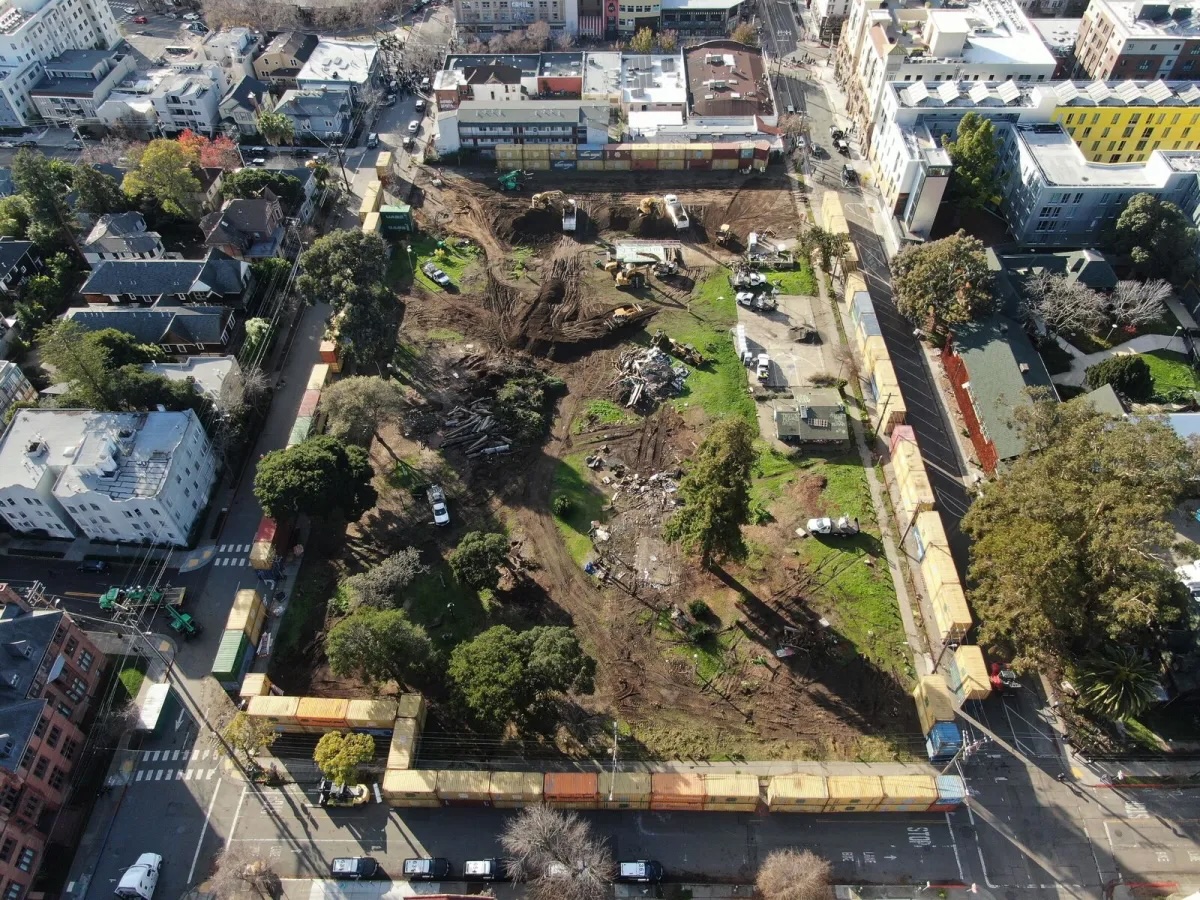The California Supreme Court has reminded everybody that the California Environmental Quality Act is just a law – one that can be changed by the legislature at any time.
On Thursday, June 6, the court finally ruled in the long-awaited “People’s Park” case – the one where an appellate court ruled last year that noisy students can be a “significant impact” under CEQA, possibly triggering the need for an environmental impact report and mitigation. But the Supreme Court went the other way, overturning the lower court decision and clearing the way for construction of student residences in People’s Park.
Enraged that more student housing at UC Berkeley might be put at risk by CEQA the Legislature quickly passed – and Gov. Gavin Newsom signed – AB 1307, which specifically stated that noisy college students aren’t a significant impact on residential projects and that the University of California can’t be required to consider alternative sites under some circumstances. Both these provisions were targeted directly at the People’s Park case, as innumerable legislators made clear at the time.
That law made UC’s appeal to the Cal Supremes in the People’s Park case a bit anticlimactic. The plaintiff in the case – a group known as ‘Make UC A Good Neighbor” – acknowledged that AB 1307 applied to the project they were challenging, a student residence project in People’s Park in Berkeley. But the group still claimed that a noisy students argument should apply to the environmental review of UC Berkeley’s Long Range Development Plan, or LRDP, because that isn’t a “residential project”. And the plaintiff also argued that the Cal Supremes should weigh in on the alternatives question.

People's Park Is Currently Blocked By Shipping Containers
Writing for the Supreme Court, Chief Justice Patricia Guerrero admitted it was a closer call than it otherwise might look. On the question of whether AB 1307 applies to Berkeley’s LRDP because the LRDP could be defined as including “residential projects, after five pages of analysis, she said that “we conclude the term is ambiguous.”
To come up with an answer, Guerrero dug deep into AB 1307’s legislative history and reminded everyone that the entire bill was aimed at the People’s Park case.
“The legislative history of Assembly Bill 1307 overwhelmingly establishes that the Legislature enacted the new law to abrogate the Make UC decision,” she wrote for a unanimous court. “The legislative history is replete with references to the Make UC decision. And it is quite clear that, in enacting section 21085, the Legislature was focused on rejecting the Make UC court’s central underlying conclusion that social noise from residential users may constitute a significant effect on the environment.”
She rejected the community group’s argument that AB 1307 didn’t apply to the LRDP because it is not a “residential project” not only because of the legislative history but also because of the LRDP’s extensive references to adding more than 11,000 student beds during the implementation period covered by the plan.
On the question of alternative sites, Guerrero refused to bite: “We … reject Good Neighbor’s request that we consider the potential application of the new statute to future projects on the ground … The question of how [Public Resources Code] section 21085.2 [part of AB 1307] might apply to future housing projects — other than the People’s Park project — is simply not before us and we do not render advisory opinions on such issues.”
The People’s Park case involves a community challenge to UC Berkeley’s plan to build both student housing and a new park on the storied location, which was the site of highly publicized protests in the 1960s. People’s Park is a 2.8-acre off Telegraph Avenue along Dwight Way that UC originally purchased via eminent domain in 1967. The site was originally slated for student housing and other purposes, including a sports field, but in 1969 local residents essentially appropriated the site as a park. In May 1969, a protest on campus moved to the park and protesters argued vocally to keep the park from further development. Law enforcement officials responded by seeking to disperse the crowd but at least one person was killed in the melee.
In a tentative ruling released in December 2022 – a highly unusual move – the three-judge First District panel ruled that potential noise from drunken students late at night must be analyzed under CEQA because it’s statistically likely that they will be noisy and also that the potential environmental impacts of additional homeless people must also be analyzed. (Prior CP&DR coverage of the tentative ruling can be found here.)
The final ruling, which was very different in tone, backed off of the displacement/homeless issue but concluded that noise from student parties in Berkeley is a significant environmental impact that UC must analyze in its environmental impact report. (CP&DR’s coverage of the final ruling can be found here.)
The Case:
Make UC A Good Neighbor v. Regents of UC, No. S279242 (filed June 6, 2024)
The Lawyers:
For Make UC A Good Neighbor: Thomas Lippe, Law Office of Thomas N. Lippe, lippelaw@sonic.net
For Regents of UC: Nicole H. Gordon, Sohagi Law Group, ngordon@sohagi.com